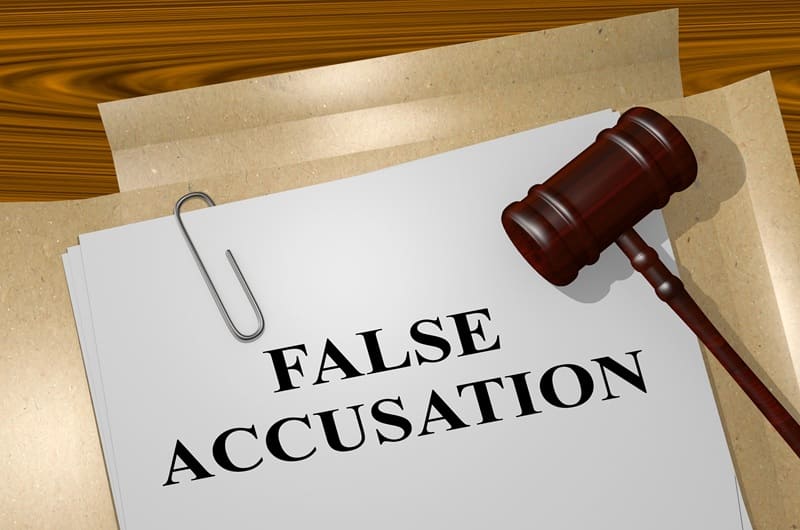Virginia DUI Laws 2025 Guide To Charges & Penalties
Virginia DUI Laws 2025 Guide To Charges & Penalties
Imagine you’re driving home after a night out. Suddenly, flashing lights appear in your rearview mirror—and just like that, you’re facing a DUI charge. In Virginia, this isn’t just a traffic ticket. It’s a criminal offense with serious, long-term consequences. Even first-time offenders can face harsh penalties like fines, license suspension, and jail time.
This 2025 guide explains what you need to know about Virginia DUI laws. We’ll cover how DUI is defined, the different types of charges, and what penalties you can expect. Understanding the law is key to knowing what you’re up against, whether it’s your first offense or a repeat.
Understanding DUI In Virginia
Virginia’s DUI laws in 2025 reflect a clear stance: driving under the influence will be met with firm consequences. The state maintains strict legal thresholds and follows a structured process when determining if an individual is impaired.
Whether the charge stems from alcohol, drugs, or a combination of both, the standards remain uncompromising. Knowing how the law defines impairment—and what rights and responsibilities come with it—can shape the outcome of a case.
Legal Definition & Standards
Driving with a blood alcohol concentration (BAC) of 0.08% or higher qualifies as driving under the influence. For drivers under 21, the limit drops to 0.02%, and commercial drivers are held to a stricter 0.04%. However, a charge can still be issued with lower BAC levels if law enforcement believes the driver’s ability is impaired.
Implied Consent Law
Operating a vehicle in Virginia means agreeing to chemical testing if stopped under suspicion of DUI. This is known as the implied consent law. Refusing a breath or blood test triggers automatic penalties, even before a court verdict. A first refusal results in a 12-month license suspension, while repeat refusals carry criminal charges and longer suspensions.
Once impairment is established, the next step is classifying the charge. Not all DUIs are the same. The details—like BAC level, prior offenses, or endangering others—can raise the severity. These factors determine whether the charge is a misdemeanor or a felony and what penalties may follow.
DUI Charges & Classifications
DUI offenses in Virginia are categorized based on the number of prior convictions and the specific circumstances of each case. Each level carries distinct legal consequences that grow increasingly severe with repeat violations.
The law is structured to escalate punishment, treating subsequent offenses not as isolated mistakes but as signs of repeated risk to public safety. Understanding these classifications is essential for recognizing the legal exposure at stake.
First-Time Offense
A first DUI offense in Virginia is a Class 1 misdemeanor. Penalties include a minimum $250 fine, a 12-month license suspension, and mandatory participation in the Virginia Alcohol Safety Action Program (VASAP). Installation of an ignition interlock device may also be required for restricted license eligibility.
Second Offense
A second offense reflects a pattern of behavior and triggers harsher responses. Fines increase to at least $500, and mandatory jail time—starting at 10 days—may apply depending on the time frame between offenses.
The license suspension period can extend up to three years. Higher BAC levels during arrest will lead to additional mandatory incarceration.
Third & Subsequent Offenses
A third DUI offense within ten years is prosecuted as a Class 6 felony. This classification introduces severe penalties. It includes indefinite license revocation, a mandatory minimum six-month jail sentence, and the potential forfeiture of the driver’s vehicle.
Beyond the courtroom, a felony conviction can impact employment, housing opportunities, and civil rights for years. While prior convictions play a significant role, other aggravating factors can increase penalties, even for first-time offenders.
Aggravating Factors & Enhanced Penalties
Certain elements can significantly increase the severity of a DUI charge in Virginia. These aggravating factors prompt enhanced penalties and reduce judicial flexibility. A blood alcohol concentration (BAC) of 0.15% to 0.20% adds a mandatory minimum of five days in jail.
If the BAC exceeds 0.20%, the jail time increases to ten days. Driving under the influence with a minor passenger triggers additional fines and at least five days of mandatory incarceration.
Other factors, such as causing injury, property damage, or driving without a valid license, can elevate the charge to a felony. These circumstances heighten legal penalties and influence how prosecutors and judges approach the case.
The presence of aggravating factors limits defense options and increases the stakes considerably. When combined with the standard penalties, they underscore how high the costs of a DUI can rise. Understanding these risks sets the stage for examining the full consequences that follow a conviction.
Consequences Of A DUI Conviction
A DUI conviction in Virginia extends far beyond the courtroom. It affects multiple areas of life, with penalties often reaching into one’s personal and professional future. Recognizing the full impact of a conviction is critical to understanding the urgency of mounting a strong legal defense.
Legal & Administrative Penalties
Virginia law imposes both immediate and long-term sanctions. These may include heavy fines, mandatory participation in VASAP, and installing an ignition interlock device. A license suspension or revocation is standard, regardless of whether the conviction stems from a first or subsequent offense.
Personal & Professional Impact
Beyond the court, the effects can be lasting. Convictions often lead to higher insurance premiums, job loss, particularly for roles requiring a clean driving record, and difficulty securing housing. Background checks for school or professional licenses may also be affected.
Given the profound and far-reaching consequences of a DUI conviction, having the proper legal representation becomes essential. An experienced DUI attorney can assess your case details and challenge weak evidence. Understanding how these defense strategies work is key to protecting your rights and future.
Defense Strategies For DUI Charges
Navigating a DUI case without skilled legal representation can be overwhelming and risky. DUI lawyers play a critical role in identifying weaknesses in the prosecution’s case and advocating for reduced charges or dismissal when possible.
With a deep understanding of state procedures and evidence requirements, experienced attorneys can challenge key aspects of the case that may otherwise go unquestioned. Legal strategy often determines whether a person faces the full weight of the law or a far more favorable outcome.
Challenging The Stop & Arrest
One of the first areas a defense attorney examines is the legality of the traffic stop. If the officer lacked reasonable suspicion or failed to follow proper arrest procedures, evidence obtained during the stop may be inadmissible. This can incur a reduction or dismissal of charges. Legal precision at this stage often sets the tone for the entire case.
Contesting Chemical Test Results
DUI attorneys closely review the administration of breath and blood tests. Testing equipment must be appropriately calibrated and maintained, and officers must follow strict protocols. Any deviation can compromise the results and weaken the prosecution’s position. Attorneys can file motions to suppress flawed evidence, shifting the advantage to the defense.
Negotiating Plea Agreements
In cases where conviction is likely, attorneys may negotiate plea deals to secure lesser penalties. These may include reduced fines, limited license suspension, or avoiding jail time through alternative sentencing.
Every negotiation is tailored to the facts of the case and the client’s personal history. A lawyer’s experience and reputation often influence the outcome of these discussions. Whether through courtroom litigation or strategic negotiation, DUI attorneys provide critical protection at every stage.
The Irving Law Firm: Your Advocate In DUI Cases
At The Irving Law Firm, we understand what’s at stake when someone is charged with DUI in Virginia. A conviction can impact every part of life—from driving privileges to future employment. That’s why our team brings focused, strategic defense to every case. We dig deep into the details, examine every angle, and build a path forward based on facts and sound legal judgment.
Clients trust us because we don’t take a one-size-fits-all approach. We tailor our defense strategy to each situation, whether a first-time offense or a felony-level charge. Our attorneys work directly with clients, ensuring communication stays precise, responsive, and solution-driven.
The goal is not just to defend but to protect futures. We take that responsibility seriously. We’re here to stand between our clients and the weight of a DUI conviction—and fight for the best possible outcome.
Virginia’s DUI laws in 2025 impose swift and severe consequences, even for a first offense. Charges can lead to jail time, license suspension, fines, and long-term personal setbacks. Understanding the classifications, penalties, and available defense strategies is essential for protecting legal rights and future opportunities.
With the knowledgeable legal support of The Irving Law Firm, individuals facing DUI charges can better navigate the process and work toward a more favorable resolution. Taking early action is often the key to limiting the lasting damage of a conviction.






